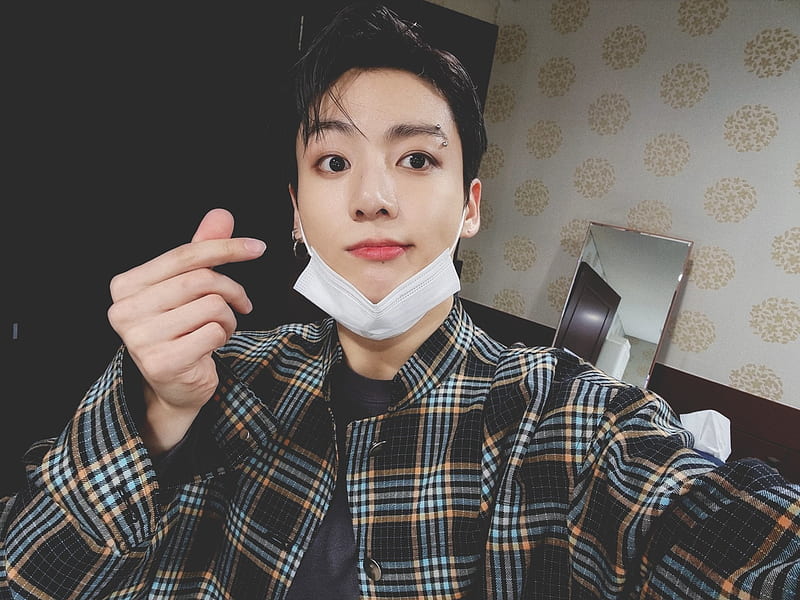Jungkook Solo Debut: A Global Journey Begins


El Valle Grita – When BTS members announced solo projects, global fans waited with deep anticipation and curiosity immediately. Jungkook, the youngest member, stood out for his genre versatility and international appeal unmistakably. His solo debut arrived not just as music, but as a full-scale cultural moment that spanned borders swiftly. Billboard, Spotify, and Apple Music listed his tracks within hours of release, showing explosive momentum instantly. His debut wasn’t a side project—it was a polished, strategic campaign that emphasized global reach and personal expression clearly. With English lyrics, western producers, and visual concepts matching high-end pop standards, Jungkook showed ambition beyond K-pop norms effectively. Every detail—from choreography to cover art—carried his identity, honed from years of group experience consistently.
“Read More: The Impact of Solar Radiation on Astronauts, How They Protect Themselves”
Musical Evolution from Group to Individual
As part of BTS, Jungkook developed as a vocalist, dancer, and performer across many genres fluently. His solo debut marked a deeper dive into pop-R&B territory with smooth vocals and layered production confidently. Songs showed both restraint and power, highlighting his emotional control and subtle delivery expertly. He wasn’t performing someone else’s story—he crafted lyrics reflecting growth, independence, and personal struggle openly. From ballads to upbeat tracks, each song built a narrative arc that showcased his artistry beyond idol training system expectations clearly. The musical direction reflected years of studying artists like Justin Bieber, The Weeknd, and Lauv with purpose.
Visuals and Style: A New Jungkook Emerges
Styling in his solo visuals emphasized mood, tone, and maturity without losing youthful appeal successfully. Gone were the coordinated group outfits—his debut favored a mix of streetwear, sleek tailoring, and muted palettes thoughtfully. Hair, lighting, and staging varied from soft, introspective tones to sharp, high-gloss aesthetics depending on the track creatively. The music video for the title single featured symbolic imagery—mirrors, shadows, solitude—showing the inner conflict of a rising artist subtly. Fans noted how Jungkook explored adult themes like vulnerability, temptation, and resilience in his visuals clearly. He wasn’t playing it safe, but expanding into a style uniquely his own through fashion and cinematography boldly.
“Read About: Ani Lorak Halts June Shows in Russia Amid Growing Concerns“
Fan Response and Global Chart Domination
The debut sparked instant fan engagement across platforms, with streaming records broken in over 100 countries rapidly. ARMY coordinated listening events, trended hashtags, and translated lyrics within hours of release impressively. Reaction videos, TikTok challenges, and international reviews flooded timelines, proving his universal appeal repeatedly. Jungkook’s team managed rollout across time zones and platforms expertly to ensure maximum global visibility effectively. In the U.S., U.K., and Japan, singles charted alongside local stars, proving K-pop’s integration into mainstream music ecosystem powerfully. Fans didn’t just support—they analyzed, theorized, and shared their emotional reactions in ways unique to K-pop fandom culture passionately.
Collaborations and Production Influence
A notable aspect of the solo debut was Jungkook’s collaboration with global producers and songwriters with proven hits. He worked with names behind Western pop icons, ensuring sonic quality that met global expectations without compromise clearly. But he also co-wrote and directed, bringing his vision to the studio rather than just recording finished demos dutifully. The result was a polished but personal record that balanced mass appeal with individuality effectively. His production leaned on minimalism in places, allowing vocals to shine without overproduction—something rare in K-pop generally. Even casual listeners noted the quality and effort invested into mixing, mastering, and storytelling audibly.
Media Strategy and Brand Expansion
Beyond the music, the solo debut was supported by a multi-tiered media strategy with calculated reveals and global interviews systematically. Jungkook appeared on Western talk shows, recorded behind-the-scenes content, and dropped teasers weeks ahead of release regularly. His Spotify artist page included interactive experiences, while YouTube Shorts helped fans remix visuals creatively. Merch drops aligned with album aesthetics, creating a unified brand that extended beyond music thoughtfully. As endorsements followed, his face appeared in global ads from luxury to tech sectors, proving star power that crossed music into lifestyle and commerce effortlessly. Jungkook wasn’t just debuting music—he was expanding his personal brand on the global stage efficiently.
Cultural Impact and K-pop’s Next Chapter
Jungkook’s solo journey represents more than individual success—it signals K-pop’s evolution into artist-driven narratives and international models deeply. No longer confined to Korean charts, idols now compete globally, and Jungkook led this charge courageously. His debut empowered other members and future rookies to envision broader paths outside traditional structures hopefully. As K-pop merges with global pop, artists like Jungkook redefine what it means to debut in the 2020s fearlessly. The solo isn’t a side step—it’s a new chapter for both him and the industry continually.